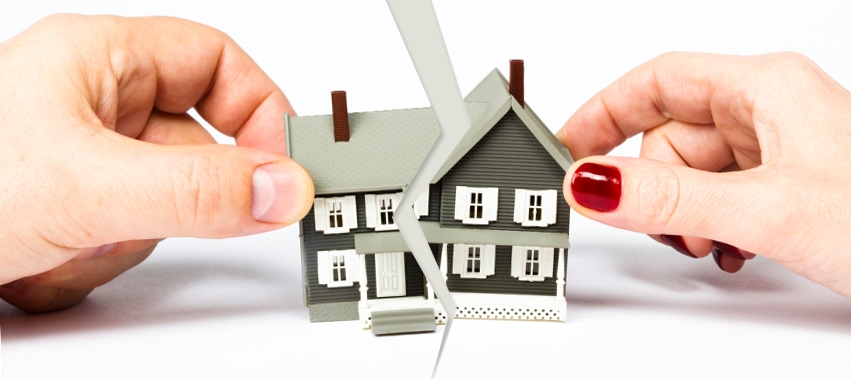What Happens to the Property During Divorce? Today’s guest blog is by The Law Offices of Jeffrey M. Bloom. The opinions expressed by the author in this and all guest blogs are not necessarily those of Torrance Divorce Attorney Kevin Kensik.

What Happens to the Property During Divorce?
Divorces are difficult, and very few of them end without any dispute over the assets. Among those, real estate assets are the biggest shared assets the biggest investment any couple makes. However, when the couple decides to seek a divorce, it brings many uncertainties, principally, what would happen to their house or other marital real estate assets.
Marital house (or property) refers to the house the married couples share with their spouses and family. The house can be the same used before marriage or the house bought by both spouses after the wedding. While deciding upon the property, it depends on which state you are living in as well as if the house is jointly owned property.
The divorcing couples must consult a divorce attorney to know what exactly happens to their property during a divorce:
When the Property Purchased and then Used During the Marriage:
The date when the property was purchased plays the biggest role in deciding the fate of the property during divorce. The property bought before marriage will be considered as ‘pre-marital asset,’ which means it belongs to that spouse exclusively. But, when the same property was used as a home where both spouses lived together after marriage, or it served as a source of income to them, such property is considered as marital property. This property will be distributed between both spouses, on the occasion of divorce.
Exclusive Ownership of the Property:
According to most of the states’ law, the spouse can own and retain a real estate property exclusively, when bought before marriage. The ownership of such property will remain the same, despite the absence of prenuptial agreement.
The key point is that the property must give benefits to the owner-spouse only. In the event of using the property by both spouses, and both enjoy the benefits, the interest of sole ownership of the property may stand dissolved.
Property Bought After the Marriage:
The house (or property) bought after marriage and used by both spouses is considered an asset owned by both of them. And consequently, it will be split equitably between both spouses.
Dealing with the Marital House, Peacefully:
When both spouses agree to solve the matter quickly, cleanly, and simply, selling off the house is the right option. The issue both spouses face is the way assets are divided, and this single issue becomes contentious. When the spouses decide beforehand about the division of the property, this reduces the contention and stress when the property is sold.
Both parties can also consider hiring an attorney or mediator to negotiate and ensure the distribution of the cash from selling the property, is appropriate. In case, the parties still don’t come to an agreement; the judge will decide the case based upon the facts and laws. And this will lead to the removal of both parties from the ability to decide on their own, moreover, the decision of the judge may leave both spouses unhappy.
The Contribution towards the Property from Both Parties:
The concept of who gets how many shares of the property is usually based upon the factor how much each party has contributed to the property. For instance, if a part has contributed 70% of cash at the time of buying, and paid to remain 30% later, it will be considered as a relative contribution. The figure can be compared to a similar amount contributed by the other spouse. Upon calculating the relative percentage of the total value each spouse contributed, the cash will be divided accordingly between both parties.
When One or Both Parties Want to Retain the House:
In case one party gives up the ownership of the house, the other spouse buys the other’s interest. Moreover, the departing spouse is left out of any obligation or right towards the property.
If both spouses want to keep the house, the judge will decide the matter. In most cases, the ownership of the house will be given to one party, while asking him or her to give up on other assets that he or she may have wished to keep. This way, both parties get an equal share out of the divorce. Hence, it is highly recommended that both parties should resolve their disputes peacefully, instead of letting the court decide their fate.
Legal Assistance:
It is a known fact that the distribution of property in a divorce can really become complicated. In order to resolve this matter, amicably, hiring an attorney is the wise approach. The attorney helps in negotiation, takes the matter to the court, and protects your interests.
Tags: Divorce, Property Division, Property During Divorce